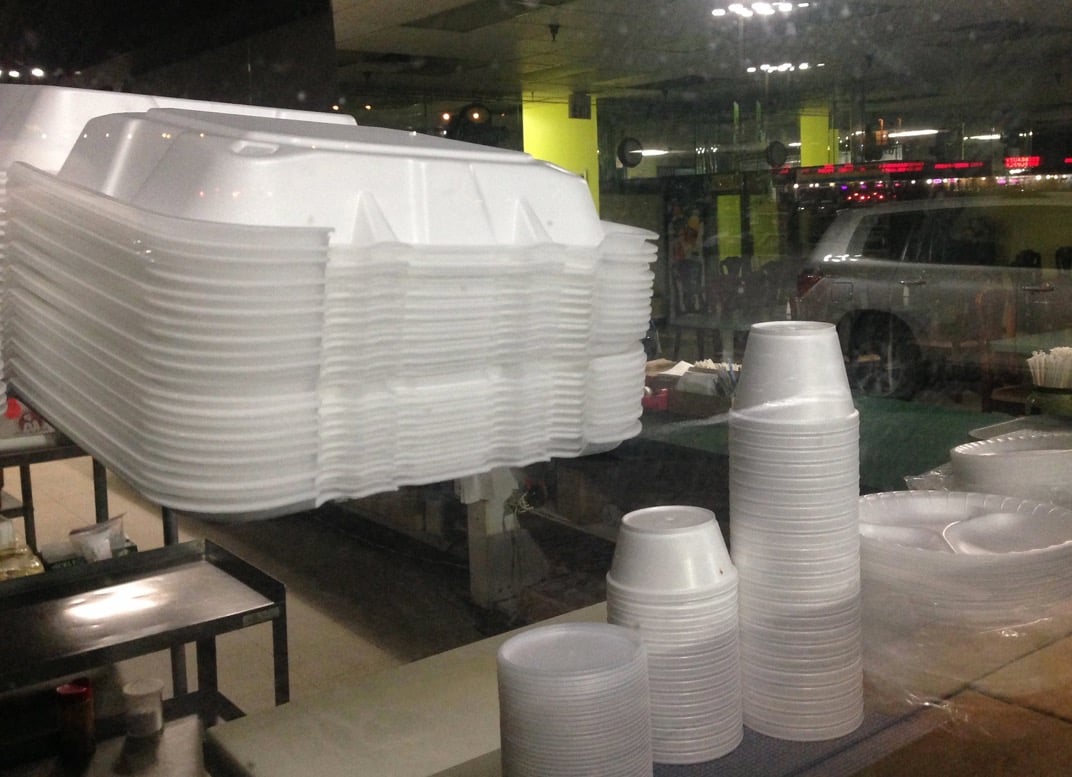
Photo: Romana Klee
Update (11/5/19): The ordinance was passed unanimously at the Nov. 5 meeting.
City Council members this week will continue a months-long discussion on ways in which Fayetteville could move away from single-use materials that end up in landfills.
The council in May agreed to stop using city money to purchase expanded polystyrene foam products, and two weeks later voted unanimously to consider an expanded ban.
This proposal would give food service providers until May 1, 2020 to clear out their current supply of expanded polystyrene foam plates, bowls, clamshells, cups, and similar products. After that, they would be required to use products made of a different material.
After the council’s decision in May, some members said they wish it went further.
Council member Teresa Turk, who sponsored the measure, said one of her campaign promises last year was to try and reduce both foam and single-use plastics.
“This is just the first step,” she told the council. “There will be more coming. We’re not done.”
The regulation would apply to restaurants; hotels; grocery stores with delis or food bars; cafeterias; convenience stores; coffee, tea and donut shops; caterers; and any other prepared, ready-to-eat food or drink providers.
Retailers (like grocery stores) could still sell the products on their shelves.
From the proposed legislation:
Expanded Polystyrene (EPS) Foam single-use products break down in the environment into tiny pieces which become virtually impossible pickup or clean from the environment and travel through the air and water causing worldwide pollution, damage to the environment and health risks to many living things. The City Council has determined it is vital to our citizen’s health and especially to our water supply of Beaver Lake that the amount of EPS that can escape into our environment should be reduced as much as possible. Furthermore, there are many other products that can be reused, recycled or composted which are readily available at a reasonable cost that can substitute for EPS Foam products.
A survey conducted from July 7 through Aug. 22 asked residents and business owners for their thoughts on the idea. Staff said 2,167 residents responded, and 154 business owners completed the survey. In total, 74% of respondents said they support a ban on foam to-go containers.
The council will consider the new measure at the next regular meeting on Oct. 15.
Staff said a separate proposal to regulate plastic bags is expected to be presented at a later date.

